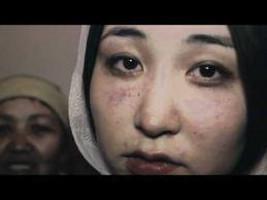



‘’Forcing a woman to marry, to continue a marriage or kidnapping her in order to marry without her consent, is a violation of Kygyz criminal law, Islamic Sharia Law, Kyrgyz tradition (adat), and of her fundamental human rights of security, freedom and equality.’’ Dr Russell Kleinbach, Kys Korgon Institute.
Ala Kachuu is a complicated crime with ambiguous issues of unspoken cultural and social norms. This practice is not only a non-consensual abduction of a girl’s right to choose her life partner but also an abduction of that girl’s life, dreams and future. Bride kidnaping in Kyrgyzstan further raises concerns of underage marriage and forced sexual intercourse since many of the abducted brides are less than 18 years old, the minimum legal age for marriage.
The mother of a recent victim voiced her traumatic episode to our Partner Rehabilitation Centre, Sezmin. The real identity of the victim cannot be revealed due to confidentiality reasons, therefore for the purpose of this article we shall refer to the victim as Salamat
On the 27th September 2012, Salamat aged 18, a pupil in general secondary education, received a call from a ‘family friend’. The family friend claimed that his car had broken down. Salamat, innocently sought her mother’s permission and went to assist the family friend, she was accompanied by her 5 year old little brother. As she unsuspectingly reached the location, there awaited her calamity. Four young men using coercive physical pressure forced Salamat into their car, as her little brother watched his older sister cry out in fear and pain. Salamat’s painful cries reached her mother’s ears, as any scared mother would, she run out to help her little girl.
But it was too late, the perpetrators had taken her daughter, leaving behind a shocked and innocent 5 year old boy, watching.
Unfortunately Salamat also had spinal complications, the physical force combined with the heightened fear and anxiety, caused Salamat to become unconscious. Eventually Salamat regained consciousness to find herself in an abandoned place, near an unknown cemetery; she begged, pleaded and cried for release, however sadly she lost consciousness again.
Having regained consciousness the second time around, she realised her kidnappers had left her, all alone. In a brave attempt Salamat searched for help but once again she lost consciousness, for the third time. A passer-by stumbled across Salamat and helped her to safety. She was later hospitalised and a complaint to the police was also made.
In a 2011 UN Report, officially just 27 cases of Ala Kachuu were reported by the Prosecutor’s office in the period 2003-2008, however the Government acknowledges that the true figure is much higher. One study estimates that 30 per cent of all marriages in the country are the result of Ala Kachuu, while others have found that in certain areas, predominantly in rural areas, the prevalence may be as high as 80 per cent.
The current legislation provides for a three-year sentence. However there is bill working its way through the Kyrgyz parliament which would increase the maximum sentence for those kidnapping girls under 17 years of age, to 10 years imprisonment. Under the new legislation, those kidnapping women over 17 would face five-year sentences. Opponents of the new legislation have argued that the increased sentences were excessively harsh and that bride kidnapping is a Kyrgyz tradition.
The new sentences are still lower than for livestock theft, someone who steals a cow could go to prison for up to 11 years.
Returning to Salamat, all her kidnappers were caught and detained, but sadly it later transpired that they were released due to their relatives’ efforts. Salamat’s relatives under duress retracted their complaint. Sezim was also providing psychological counselling to Salamat, as any female will agree, the psychological effect of such an incident is crippling, however forthcoming scheduled appointment were later cancelled by Salamat’s mother.
The effects of the psychological aftermath can been seen by the actions of Yrys Kasymbai, a 20-year-old Ala Kachuu victim, who hanged herself after being forced to marry her abductor and have unwanted sexual relations with him. Last month, her abductor, Shayimbek Imankulov, was sentenced to six years in the north eastern Issykul Province for the kidnapping and rape. This is the severest sentence for a crime involving bride kidnapping to date.
Banura Abdieva, head of the women’s rights organization, picketed outside the parliament building in Bishkek on the 18th October 2012. Abdieva and other activists distributed copies of the suicide note of Yrys Kasymbai and demanded tougher punishment for bride kidnapping.
The recent legislative progress has been long awaited, it may be argued that the progress is yet to provide a deserved punishment for a heinous crime, it is however a positive step. It marks the commencement of an attitude shift and a willingness to confront a salient problem. However it is clear that the legacy of this practice is embedded, therefore it is questionable if mere legal rewording will suffice? Alongside legislative changes there is a dire need for support networks, educators and responsible law enforcers to help address social attitudes and bridge an inherent cultural gap. Our partners, Sezim, provide support, shelter and advice to young victims who fall into this gap, this is how you can help.